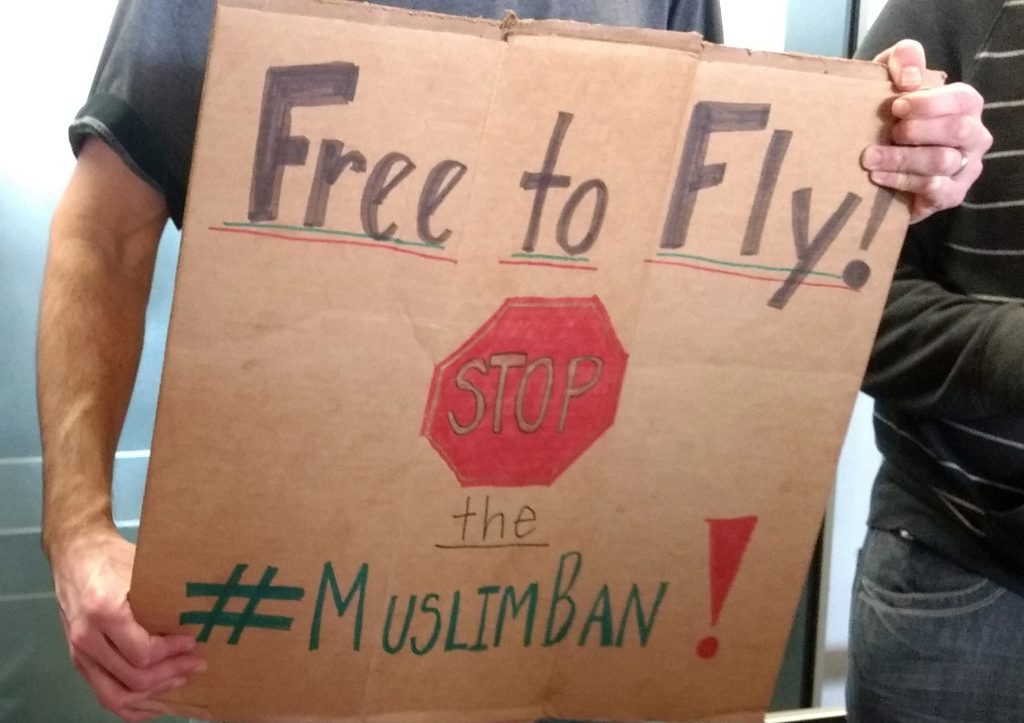Alaska and the REAL-ID Act
We’ll be testifying (by teleconference) at hearings today in the Senate State Affairs Committee (3:30 p.m. ADT) and House State Affairs Committee (5:30 p.m. ADT) of the Alaska State Legislature on three state bills related to Alaska’s response to the Federal REAL-ID Act of 2005:
- SB34: Implementation of the federal REAL ID Act of 2005
- HB74: Implementation of the federal REAL ID Act of 2005
- HJR15: Encouraging repeal of the REAL ID Act of 2005
- Alaska and the REAL-ID Act
(written testimony of Edward Hasbrouck on behalf of the Identity Project) - REAL-ID Facts for Alaskans
(fact-checking the FAQ distributed by the Alaska Department of Administration) - Alaska and the Right to Travel by Air
(facts about Gilmore v. Gonzales, the legal case cited by the Department of Administration) - Financial and other implications of the REAL-ID Act
In 2008, shortly before the REAL-ID Act was scheduled to take effect (the DHS has repeatedly postponed that discretionary “deadline” as politically and practically unfeasible, most recently until 2020) the Alaska State Legislature enacted a state law prohibiting any state spending to implement the REAL-ID Act.
Now, in respond to Federal threats to interfere with Alaskan residents’ freedom of movement if the state government doesn’t upload information about all state license and ID-card holders to a national ID database, the state legislature is considering bills to authorize that spending and implementation.
It makes no sense for Alaska to call for repeal of a disliked Federal law of dubious Constitutionality, and simultaneously to authorize state spending to comply with that law, without first getting the courts to rule on whether the (unfunded) mandate for state action or the threatened sanctions against state residents are Constitutional.
As we say today in our written testimony to members of the House and Senate State Affairs Committees:
Alaska HJR15 is an important statement of support by the Alaska State Legislature for efforts in Congress to repeal the REAL-ID Act. But Alaskans and the State of Alaska cannot, and should not, merely sit back and wait for Congress to act.
No Federal law or regulations requires air travelers to show any ID. People fly without ID every day. But the TSA has indicated that it intends to propose regulations, revise TSA Standard Operating Procedures, and/or issue Security Directives to air carriers to require air travelers to show ID acceptable to the DHS in order to fly.
This threat poses a special danger to Alaskan residents, especially those in communities and locations not connected to the North American road network, and/or who rely on air transportation for access to essential and emergency services.
Unless and until this threat is withdrawn, Alaskan state authorities including the office of the Attorney General of Alaska should be preparing to defend any Alaska residents whose rights are interfered with by Federal agents.
And rather than waiting to intervene until after Federal agents start denying Alaska residents access to essential air transportation, the state should, as soon as it is ripe for adjudication, initiate litigation to prevent interference with residents’ rights.
It makes no sense for your state to capitulate, as these bills would have it do, in response to threats of Federal action action whose Constitutionality has yet to be tested.
It would be premature for Alaska to abandon its long-standing and well-founded opposition to the REAL-ID Act in response to DHS threats to interfere with the rights of state residents as a sanction for state noncompliance with the REAL-ID Act, while:
- A Federal ID credential, a passport card, is available to any U.S. citizen who qualifies for a REAL-ID compliant state ID, and can be used for any purpose for which a compliant state ID can be used as well as for surface travel to Canada;
- Legislation to repeal the REAL-ID Act or significantly mitigate the dangers of creating an uncontrolled national ID database is pending in Congress;
- No Federal statute or regulation requires air travelers to show any ID to fly, and residents of Alaska and other states continue to fly every day without ID;
- No regulations have been proposed that would require anyone to show ID to fly;
- No court has considered whether it would be Constitutional to require air travelers or passengers of other common carriers to show ID;
- Compliance with the REAL-ID Act would create special problems for Alaskan residents, especially residents of communities not accessible by road;
- The lack of alternatives to air transport gives Alaska a uniquely strong legal basis to challenge any Federal attempt to impose an ID requirement for air travel;
- More populous states that are manifestly not in compliance with the statutory criteria for REAL-ID Act database access have not been similarly threatened; and
- No court has ruled on the legality of the DHS arbitrarily exercising “discretion” to restrict the rights of residents of some noncompliant states but not others.
We urge the Alaska State Legislature to reject SB34 and HB74, stand firm in your opposition to the REAL-ID Act, and prepare to defend the Constitutional rights of Alaskans and all Americans to freedom of travel and movement, including by air.
